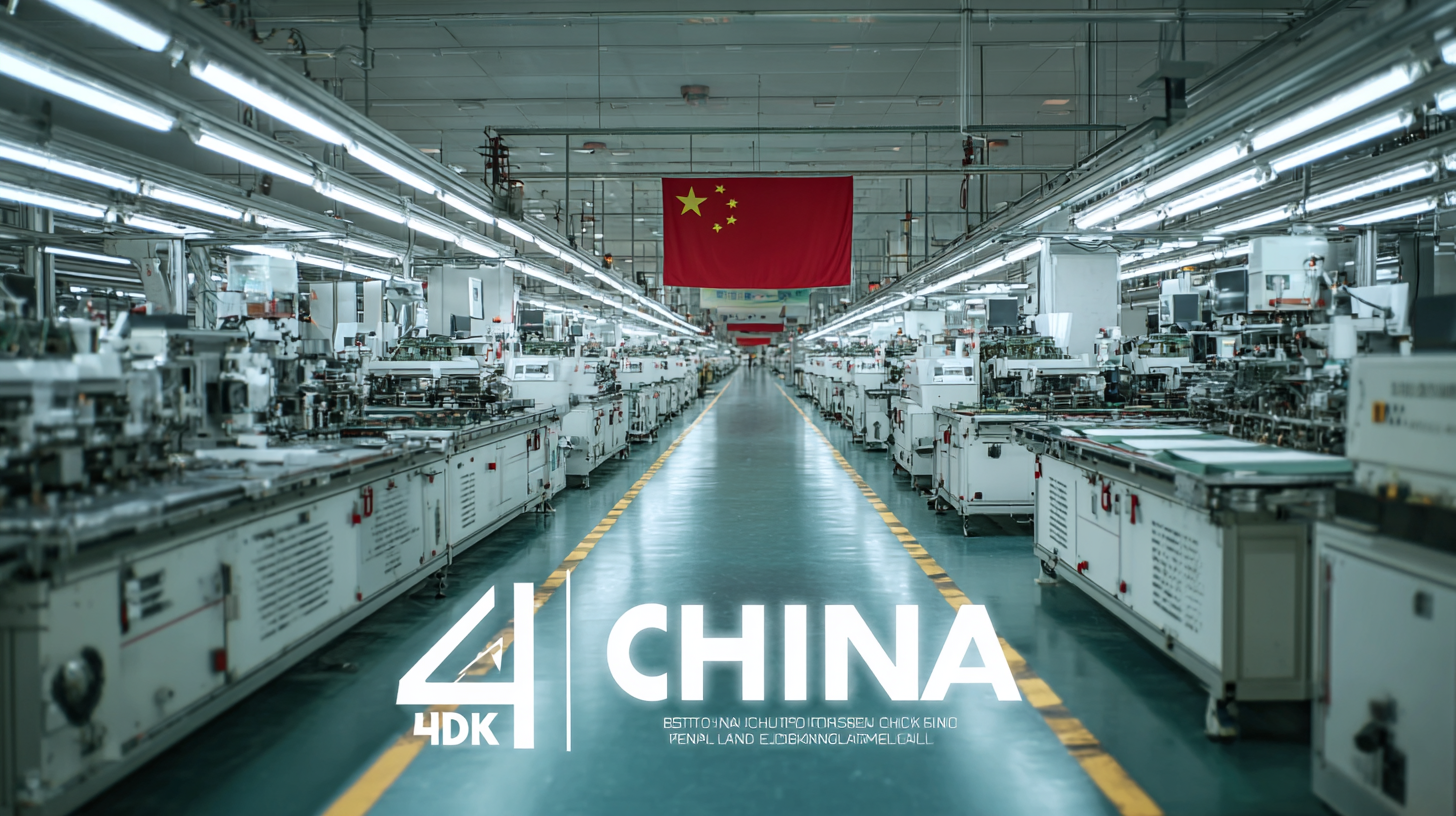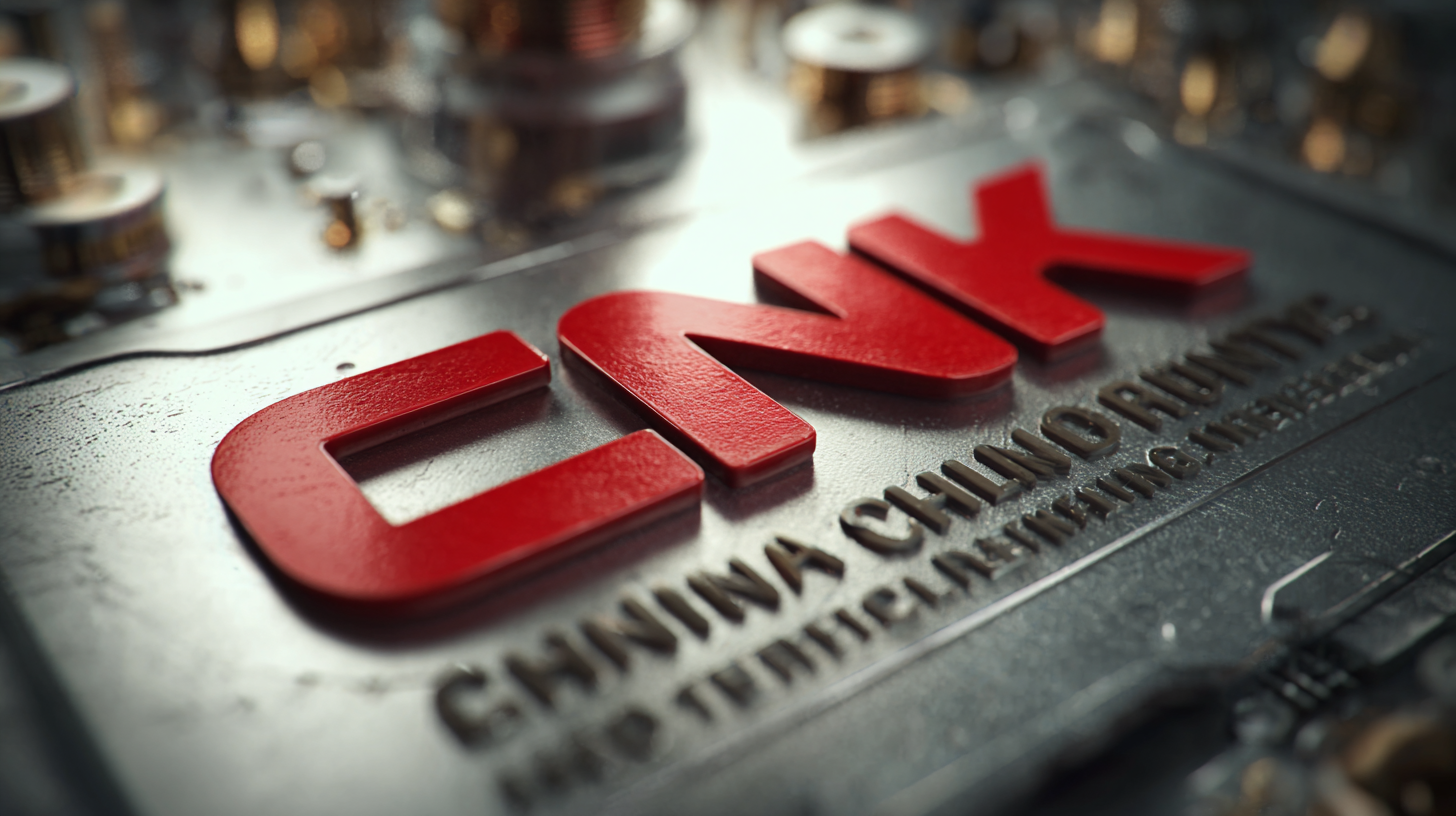
Unmatched Quality: Discover Why 'Best China' Leads Global Manufacturing Excellence
As global manufacturing continues to evolve, China remains at the forefront, showcasing unmatched quality that sets the standard for excellence in production. According to a report by the McKinsey Global Institute, China is responsible for nearly one-third of the world's manufacturing output, a testament to its robust industrial capabilities and technological advancements. The World Bank further highlights that in 2021, China contributed over $4 trillion to the global manufacturing sector, outpacing other countries by a significant margin.

This dominant position is not merely a result of scale; it is also due to China's commitment to quality, as evidenced by its skilled workforce and innovative practices. Businesses worldwide are increasingly recognizing that choosing to manufacture in China does not just guarantee cost-effectiveness, but also superior product quality and reliability.
Exploring the reasons behind China's manufacturing prowess provides valuable insights for companies aiming to optimize their supply chains and enhance their competitive edge in the global market.
The Rise of 'Best China': Analyzing the Global Manufacturing Landscape
The global manufacturing landscape has witnessed a remarkable transformation in recent years, with "Best China" emerging as a formidable leader. According to the latest report from the Global Manufacturing Competitiveness Index, China's manufacturing sector has consistently outperformed its competitors, accounting for nearly 28% of the world’s total manufacturing output in 2021. This dominance can be attributed to a robust supply chain network, high capacity for innovation, and significant investments in technology.
Furthermore, research by McKinsey indicates that China's manufacturing capabilities are evolving, with over 90% of traditional manufacturers adopting advanced technologies such as AI and robotics. This push towards automation is projected to increase China's productivity by 25% by 2025, further solidifying its status as a global industrial powerhouse. As companies worldwide look to optimize their production processes, the strategic advantages provided by "Best China" set a benchmark for manufacturing excellence that resonates deeply across international markets.
Key Factors Driving Unmatched Quality in Chinese Manufacturing
Chinese manufacturing has established an unmatched reputation for quality, thanks largely to a combination of advanced technologies, skilled labor, and stringent quality control measures. One key factor driving this excellence is the significant investment in state-of-the-art machinery and automation. Manufacturers in China have embraced Industry 4.0, integrating the Internet of Things (IoT), artificial intelligence, and robotics into production lines. This modernization not only enhances efficiency but also ensures precision and consistency in the manufacturing process.
Another crucial element behind the superior quality in Chinese manufacturing is the focus on workforce development. The availability of a large pool of skilled labor, supplemented by continuous training and education programs, allows manufacturers to maintain high standards. Additionally, companies often adopt rigorous quality assurance protocols, adhering to international standards such as ISO certifications. These practices not only elevate the product quality but also foster a culture of excellence, making Chinese manufacturers the preferred choice for businesses around the world seeking reliable and high-quality manufacturing solutions.
Unmatched Quality: Key Factors Driving Manufacturing Excellence in China
This chart illustrates the key factors that contribute to the unmatched quality of Chinese manufacturing, based on recent industry research.
Innovative Technologies: How Automation Enhances Production Efficiency
In the era of rapid industrial transformation, automation stands at the forefront of enhancing production efficiency within global manufacturing networks. According to a recent report by McKinsey & Company, the implementation of advanced automation technologies can boost productivity by up to 20% in manufacturing sectors. This shift not only speeds up production processes but also significantly reduces operational costs, making firms like 'Best China' leaders in the global market.
Furthermore, the integration of artificial intelligence and machine learning into manufacturing workflows allows for real-time data analysis and predictive maintenance, reducing downtime and improving overall output quality. A study from Deloitte highlights that companies investing in smart factories are projected to achieve an ROI of up to 30% within five years of implementation. As automation continues to evolve, it empowers manufacturers to adapt swiftly to market demands while maintaining unparalleled quality standards, solidifying 'Best China' as a benchmark for excellence in the industry.
Supply Chain Management: Strategies for Optimizing Manufacturing Costs
In the competitive landscape of global manufacturing, optimizing supply chain management has become paramount for companies aiming to enhance efficiency and reduce costs. Recent disruptions have highlighted the need for resilient supply chains that can withstand challenges such as geopolitical tensions and pandemics. By adopting advanced strategies, businesses can leverage technologies like AI and data analytics to restructure their supply bases, ensuring not just efficiency but also adaptability in the face of uncertainty.
AI is emerging as a game-changer in managing supply chain complexities. It enables companies to analyze vast amounts of data to forecast demand, streamline inventory management, and optimize production scheduling. Moreover, the implementation of digital twins allows businesses to create virtual replicas of their supply chains, facilitating real-time monitoring and scenario planning. This proactive approach is essential for navigating tariff fluctuations and maintaining a balance between cost reduction and operational resilience. By prioritizing these innovative strategies, manufacturers can position themselves for sustained success in an ever-evolving market.

Quality Control Measures: Setting New Standards in Global Manufacturing
In the fast-paced world of global manufacturing, "Best China" stands out as a leader in quality control measures that are reshaping industry standards. By implementing rigorous quality assurance protocols, they ensure that each product meets stringent specifications before reaching the consumer. This commitment to excellence is evident in their use of advanced technologies, such as automated testing systems and real-time monitoring, which significantly reduce errors and enhance overall efficiency.

Moreover, Best China prioritizes continuous improvement through regular training and development programs for its workforce. By cultivating a skilled and knowledgeable team, the company fosters a culture of quality and accountability that permeates every level of production. Their proactive approach involves soliciting feedback from customers and integrating it into their quality management processes, enabling a dynamic response to market needs and trends. This relentless pursuit of quality not only boosts customer satisfaction but also sets Best China apart as a benchmark for manufacturing excellence globally.
